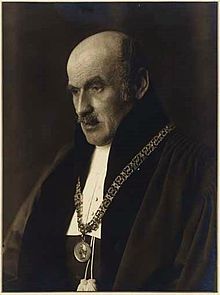Karl Vossler
Appearance
Karl Vossler | |
|---|---|
 Karl Vossler (1926) | |
| Born | 6 September 1872 |
| Died | 19 September 1949 (aged 77) |
| Alma mater | Heidelberg University (PhD) |
| Occupation | Romanist |
Karl Vossler (6 September 1872 – 19 September 1949) was a German linguist and scholar, and a leading romance philologist.[1] Vossler was known for his interest in Italian thought, and as a follower of Benedetto Croce. He declared his support of the German military by signing the Manifesto of the Ninety-Three in 1914. However, he opposed the Nazi government, and supported many Jewish intellectuals at that time.
In 1897 he received his doctorate from the University of Heidelberg, and in 1909 was named a professor of Romance studies at the University of Würzburg. From 1911 onward, he taught classes at the University of Munich.[2]
Works by Vossler published in English
[edit]- "Mediaeval culture; an introduction to Dante and his times"; translated by William Cranston Lawton (1929).
- "The spirit of language in civilization"; translated by Oscar Oeser (1932).
- "Jean Racine"; translated by Isabel and Florence McHugh (1972).[3]
See also
[edit]Notes
[edit]- ^ Darko Suvin called him The leading Romanist of pre-Nazi times[1]
- ^ Thibaut - Zycha / edited by Walther Killy Dictionary of German Biography
- ^ HathiTrust Digital Library (published works)
External links
[edit]- Newspaper clippings about Karl Vossler in the 20th Century Press Archives of the ZBW
- Dante Alighieri: Die Göttliche Komödie. Deutsch von Karl Vossler Text Italienisch-Deutsch Koloriert Italienisch-Deutsch koloriert
Categories:
- 1872 births
- 1949 deaths
- German Hispanists
- Romance philologists
- Linguists from Germany
- Heidelberg University alumni
- Writers from Stuttgart
- Academic staff of the University of Würzburg
- Academic staff of the Ludwig Maximilian University of Munich
- Recipients of the Pour le Mérite (civil class)
- Members of the German Academy of Sciences at Berlin
- German linguist stubs
